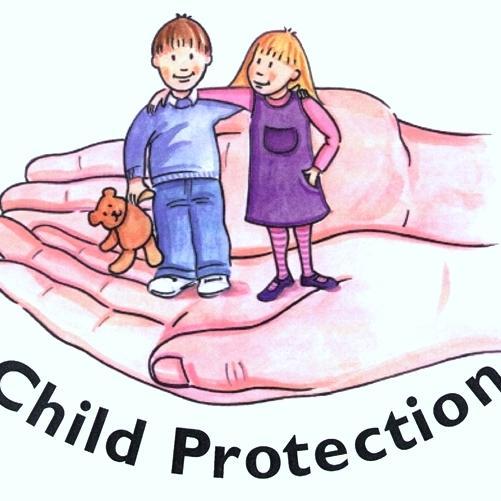PIB News Update: Minister of Women and Child Development, SmritiZubinIrani has informed that The number of cases registered under the Protection of Children from Sexual Offences (POCSO) Act, 2012 in the last three reports of NCRBis at Annexure-I.
Police and public order are State subjects under the Seventh Schedule to the Constitution of India. The responsibilities to maintain law and order, protection of life and property of the citizens including children, rest primarily with the respective State Governments and UT Administration. The State Governments and UT Administrations are competent to deal with such offences under the extant provisions of laws. The data regarding crime against children is available on the website of National Crimes Record Bureau i.e. www.ncrb.gov.in.
Further under Section 2(14) (ii) of the Juvenile Justice (Care and Protection of Children) Act, 2015 (JJ Act), such children are considered as children in need of care and protection deserving the security net of Institutional and non-Institutional care under the JJ Act. Under the Act a stringent penalty shall be imposed on whosoever employs or uses any child for the purpose of begging or causes any child to beg. The primary responsibility of execution of the Act lies with the States/UTs.
The Government has taken a number of other initiatives for prevention of crime against children which includes:
- The Government is implementing a centrally sponsored Child Protection Services (CPS) scheme (erstwhile Integrated Child Protection Scheme) for supporting the children in need of care and protection (CNCP). The primary responsibility of implementation of the scheme lies with the State Governments/UT Administrations. Under the scheme, institutional care to CNCP and Children in Conflict with Law is provided in Child Care Institutions (CCIs). The scheme also provides for non-institutional care wherein support is extended for adoption, foster care and sponsorship. The scheme supports 24×7 outreach helpline service for children in distress. This service is available through a dedicated toll free number, 1098 which can be accessed by children in crisis or by adults on their behalf from any place in the geographical location of India.
- The Criminal Law (Amendment) Act, 2013 was enacted for effective deterrence against sexual offences. Further, the Criminal Law (Amendment) Act, 2018 was enacted to prescribe even more stringent penal provisions including death penalty for rape of a girl below age of 12 years. The Act also inter-alia mandates completion of investigation and trials within 2 months each.
- The Government of India notified the Protection of Children from Sexual Offences (Amendment) Act, 2019 effective from 16.08.2019. The POCSO Act has been amended in order to make it more effective in dealing with cases of child sexual abuse in the country.Additionally the Government has taken various steps from time to time to create awareness of the provisions of the POCSO Act through electronic and print media, consultations, workshops and training programmes with stakeholders concerned. Further, National Commission for Protection of Child Rights (NCPCR) and State Commission for Protection of Child Rights (SCPCRs) are also mandated to monitor the implementation of the POCSO Act.
- A cyber-crime portal has been launched for citizens to report obscene content.
- A “National Database on Sexual Offenders” has been launched to facilitate investigation and tracking of sexual offenders across the country by law enforcement agencies.
- An online analytic tool for police called “Investigation Tracking System for Sexual Offences” has been launched to monitor and track time-bound investigation on sexual assault cases in accordance with the Criminal Law (Amendment) Act, 2018.
- In order to improve investigation, steps have been taken to strengthen DNA analysis units in Central and State Forensic Science Laboratories. This includes setting up of a State-of-the-Art DNA Analysis Unit in Central Forensic Science Laboratory, Chandigarh.
- Guidelines have been notified for collection of forensic evidence in sexual assault cases and the standard composition in a Sexual Assault Evidence Collection Kit. A total number of 6023 officers have been trained by the Bureau of Police Research and Development (BPR&D) and LokNayakJayaprakash Narayan National Institute of Criminology and Forensic Science. BPR&D has distributed 3,120 Sexual Assault Evidence Collection Kits to State Governments/ UT Administration as orientation kit as part of training.
ANNEXURE-I
| S.No. | State/UT | 2015 | 2016 | 2017 |
| CR | CR | CR | ||
| 1 | Andhra Pradesh | 1054 | 830 | 378 |
| 2 | Arunachal Pradesh | 54 | 59 | 14 |
| 3 | Assam | 819 | 821 | 1149 |
| 4 | Bihar | 187 | 233 | 1356 |
| 5 | Chhattisgarh | 1656 | 1570 | 1676 |
| 6 | Goa | 79 | 75 | 0 |
| 7 | Gujarat | 1609 | 1408 | 1697 |
| 8 | Haryana | 988 | 1020 | 1139 |
| 9 | Himachal Pradesh | 206 | 205 | 8 |
| 10 | Jammu & Kashmir | 30 | 25 | 0 |
| 11 | Jharkhand | 182 | 348 | 385 |
| 12 | Karnataka | 1526 | 1565 | 1956 |
| 13 | Kerala | 1486 | 1848 | 1169 |
| 14 | Madhya Pradesh | 4624 | 4717 | 1569 |
| 15 | Maharashtra | 4816 | 4815 | 5248 |
| 16 | Manipur | 43 | 43 | 29 |
| 17 | Meghalaya | 167 | 151 | 242 |
| 18 | Mizoram | 169 | 167 | 194 |
| 19 | Nagaland | 15 | 27 | 41 |
| 20 | Odisha | 1372 | 1928 | 249 |
| 21 | Punjab | 666 | 596 | 489 |
| 22 | Rajasthan | 1311 | 1479 | 1180 |
| 23 | Sikkim | 55 | 92 | 87 |
| 24 | Tamil Nadu | 1544 | 1583 | 1587 |
| 25 | Telangana | 1394 | 1158 | 1632 |
| 26 | Tripura | 133 | 156 | 139 |
| 27 | Uttar Pradesh | 4541 | 4954 | 4895 |
| 28 | Uttarakhand | 168 | 218 | 191 |
| 29 | West Bengal | 1504 | 2132 | 2131 |
| 30 | A&N Islands | 39 | 49 | 65 |
| 31 | Chandigarh | 62 | 51 | 3 |
| 32 | D&N Haveli | 15 | 11 | 12 |
| 33 | Daman & Diu | 5 | 10 | 5 |
| 34 | Delhi | 1936 | 1620 | 1623 |
| 35 | Lakshadweep | 1 | 5 | 4 |
| 36 | Puducherry | 49 | 53 | 66 |
| TOTAL (ALL INDIA) | 34505 | 36022 | 32608 | |
| Source: Crime in India | ||||





